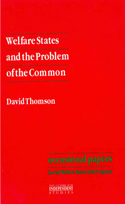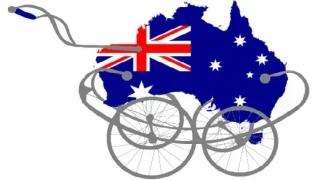
Modern welfare states involve large –scale pooling of risks and resources by peoples of different generations. But whereas this is supposed to work to the benefit of all through an implicit contract between the generations, in New Zealand it benefits only those born between 1920 and 1945, and penalises those born later.
In this contribution to the CIS Social Welfare Research Program, David Thomson argues that the typical welfare state produces unintended generational inequity because it is an ill-designed common: since no one is rewarded for self-restraint, everyone is encouraged to seize as much of it as possible, and as quickly as possible, for personal use. This ageing, self-destructing modern welfare state generates suspicion, anxiety and selfishness- the very evils it was supposed to eliminate.









